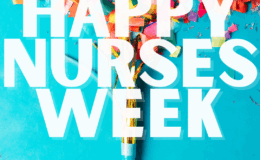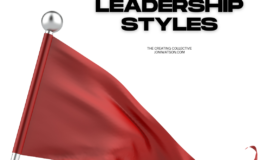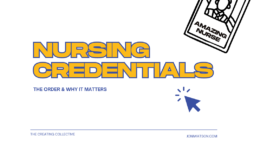The Article: Gallagher, A. (2011). Moral distress and moral courage in everyday nursing practice. Online Journal of Issues in Nursing, 16(2).
Big Idea: Nurses must be courageous in the profession. Giving bad news, caring for angry patients, and asking tough questions of other colleagues and professionals requires courage. Yet, nurses often know the “right” things to do but don’t do them. That action – as a direct result of an organizational system – is defined as moral distress.
Survey Says!: Moral distress is quite common in nurses and the nursing profession. Often systems – whether knowingly or unknowingly – keep nurses from doing what they know is right. This article explores moral distress and moral courage among nurses in several situations in the UK and Ireland. Interestingly, nurses with higher levels of education and more experience have higher levels of moral distress. Strong coping strategies and peer support decrease moral distress and increase moral courage.
Quotable: I apologize I do not have page numbers for the following quotations as I printed the article in plain text rather than PDF format.
“…moral distress arises when one knows the right thing to do, but institutional constraints make it nearly impossible to pursue the right course of action.”
“Additionally moral distress has been found to affect the health of nurses and their provisions of care, job satisfaction, and retention. Nurses who experience moral distress have reported physical symptoms, such as headache, neck pain, and stomach problems. Psychological and emotional symptoms include anger, guilt, depression, frustration, and feelings of reduced self-worth. They may also withdraw from family and friends (Schluter et al., 2008).”
“Aristotle has explained that courage is developed by habituation. This means that nurses and others become courageous by doing courageous things, by getting into the habit of acting courageously. However, courage is also a reflective activity requiring self-scrutiny and learning from the feedback and role modeling of others.”
So What?: Moral distress is very real within our profession. Nurses and nursing leaders can make a difference by role modeling courage in everyday practice, supporting moral courage, and working to deconstruct the systems perpetuating moral distress.






Rachel
July 29, 2011 12:07 pmI’ve been a R.N. for 13 years, and I just started experiencing this moral distress this last year.
What the needs of the organization are and what is right do conflict. I have had a real struggle w/this and realize that this must be what being an adult must really be about. It’s funny how I have worked fulltime all these years and just started realizing this in the last year. I think it was nicer being nieve. I am hoping to develop this moral courage that your talking about.
Sometimes it is hard to find a leader in this when your just a staff nurse.
Shawn Kennedy
August 2, 2011 7:37 amI wonder if the climate currently existing in hospitals – doing more with less, staff worried about their jobs b/c of cutbacks, the focus on the “bottom-line” – if moral distress among nurses in hospital setting is mirroring what’s happening in our society at large?
nursetopia
August 2, 2011 8:06 amThat’s a great question, Shawn. I do believe there is validity in that thought!